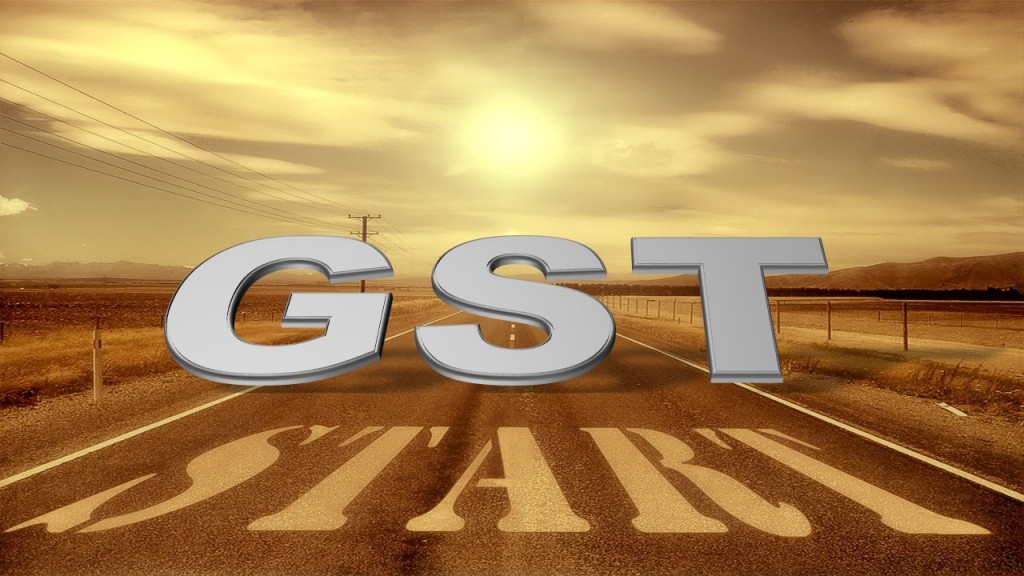The most talked, the most tweeted, the ever trending topic from the galleries of Dalal Street to the Houses of Parliament, from the tea gardens of East to the coffee plantations of South, GST is here to kick-start its journey. It is now few hours left for the historic GST to be launched in a gala ceremony in one of the world’s greatest democracies. The current position of India in the world economy and the recent past developments by the Indian government with steps such as demonetization etc., make GST as a reform, to which the entire nation, as well as the world at large, is looking forward. Here are 7 pointers from the present scenarios in relation to GST, that will spread their colors in the month of July and even further, once the gong is hit tonight:
1. In & Out: States game
As of date, all States and Union Territories, barring Jammu and Kashmir, have endorsed their respective State Goods and Services Tax (SGST) Act. While West Bengal and Kerala took the ordinance route, other State Assemblies ratified the law. After Mr. Jaitley warned that the States failing to pass the GST-enabling law in time would lose out on compensation from the Centre, Kerela promoted an ordinance on 21-June-2017 and West Bengal opted for the same on 15-June-2017. Mamta Banerjee has reserved herself from the opening ceremony calling the GST launch as a “disastrous hurry” from the Centre. Congress has also opted out to attend the grand ceremony tonight. These reservations from states and their senior leaders can cause a hustle in the coming days after the launch as they can ignite the political landscape of the nation.
2. The Input Tax fight: Stock, Stock, Stock!
An important query related to the transitional provisions under GST is regarding the treatment of VAT and CENVAT credit, in respect of stock held on 30-June-2017. This question is still creating great confusions for the business houses. However, the treatment will depend on the nature of registration of the organization under the present laws. This situation can lead to slow paced productions cycles causing mismanagement of supply chain and leading to increased prices of goods, in the earlier months of the launch.
3. Anti-Profiteering: Is it that big?
If a trader is paying, say, Rs. 100 less in the new tax rate on a certain item, he has to compulsorily sell that item for Rs. 100 cheaper, so the customer benefits proportionally. Failure to do so would mean the trader is indulging in ‘profiteering’. This is the concept of anti-profiteering. Despite a lot of agitation from the industry after the release of revised model law in November 2016, the government maintained the same provisions in respect of Anti-profiteering in the final Act too. Accordingly, it is need of the hour that industry suo moto reduces prices of goods and services. However, if it doesn’t do so, then legal provisions are there in place to take care of such situations. There are big challenges coming up next in the implementation of Anti-profiteering under GST. To list a few; practical difficulty in the computation of actual benefits derived, the problem in the determination of reduced price, constitutional challenges relating to free trade, etc.
4. Registration: I’m still not there, what next?
As a business, you do not need to get into a panic if you have missed the GST enrollment deadline at earlier dates. In addition, 1-July-2017 is no deadline to register for GST. As per recent developments, GST registration dates have been extended. Enrollment window opened again on 25-June-2017 and will continue for 3 months as per rule. This is still a big question for many business houses and will be there until there remain fear and lack of proper information among the businessmen.
5. Some questions unanswered: Petrol, Diesel, Alchohol etc.
Petroleum products such as petrol, diesel and aviation turbine fuel have been kept out of GST as of now. The GST Council will take a decision on it at a later date. Alcohol has also been kept out of GST. The further developments in this regard will be interesting to know. Let’s wait and watch.
6. Day 1: Services to cost more, goods prices to continue for a while
Service tax changes can be seen from the first day of implementation itself. Because of the different tax rates, some of the services such as telecom and financial services will become costly as they’ve been put in the higher slab of 18%. As per the experts opinion on the same, such inflationary trends will be short lived and the GST credit in the coming days will pass on the benefit to the customers, lowering the cost and passing on the benefits. However, the goods will continue to be priced the same for a short while as the manufacturers still wait to consider the net effect of the GST on their products. So, it’ll be interesting to know how things turn up in the rainy season.
7. Composition scheme and its relief
The composition scheme that provides relief to small business players having a turnover between 20-75 lakhs, is a welcome move. This also relieves them from various critical legal compliance.They’ll have to pay tax on a flat rate. This will be interesting to know that how the business makes use of this relief and work under the GST regime.
GST rainbow: Summing up
We all should be positive for a new start, as it is too early to analyze the far-fetched effect of GST on the Indian economy. Welcoming the introduction of GST from July 1, President Pranab Mukherjee thanked Prime Minister Narendra Modi and Finance Minister Arun Jaitley on the introduction of a single tax for the 130 crore people in the country. Let’s wait for the launch tonight, that will take place with the speech of Mr. Modi and is boasted to turn around $2 trillion Indian economy. Kudos!
